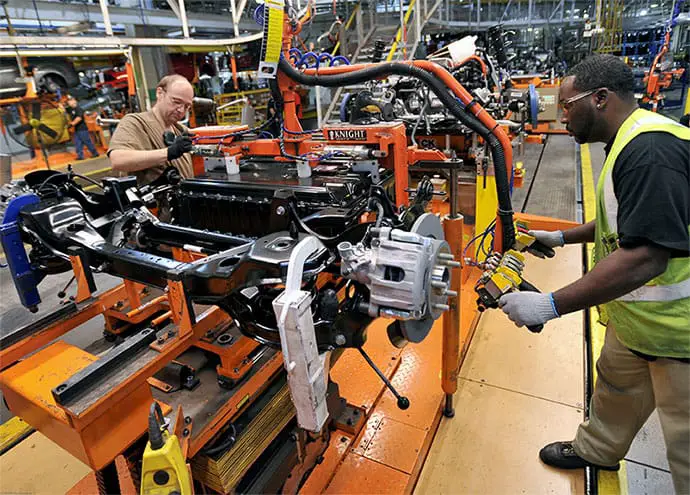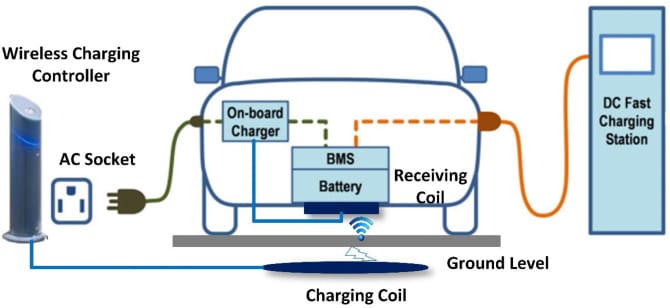Ethiopia Launches Largest Electric Vehicle Factory: A New Era in African Automotive Manufacturing.
In a groundbreaking development for Africa's automotive industry, Ethiopia has launched the continent's largest electric vehicle (EV) factory, signaling a bold step towards sustainable development and technological innovation.


In a groundbreaking development for Africa's automotive industry, Ethiopia has launched the continent's largest electric vehicle (EV) factory, signaling a bold step towards sustainable development and technological innovation.
The new facility, which can manufacture 1,000 electric cars annually, positions Ethiopia as a key player in the global transition to green energy and underscores the nation's commitment to reducing its carbon footprint.
A Vision for a Sustainable Future
The launch of this factory is a pivotal moment in Ethiopia's industrial growth.
The country has long been recognized for its ambitious renewable energy initiatives, notably in hydroelectric power.
With the establishment of this EV factory, Ethiopia is expanding its green infrastructure, aiming to reduce its reliance on fossil fuels and decrease urban air pollution in major cities like Addis Ababa.

Prime Minister Abiy Ahmed, who has championed numerous infrastructure projects since taking office, hailed the factory as a significant milestone in Ethiopia's industrialization agenda.
"This factory represents our nation's dedication to embracing the future of mobility. By producing electric vehicles locally, we are not only creating jobs and boosting our economy but also contributing to the global effort to combat climate change," he stated during the inauguration ceremony.
The Factory: A Hub of Innovation
The state-of-the-art facility, built in collaboration with international partners, features advanced manufacturing technologies that adhere to global standards of efficiency and environmental stewardship.
The factory is designed to produce various models of electric vehicles, from compact city cars to larger family vehicles, catering to the diverse needs of Ethiopian consumers.
One of the key innovations in the factory is its integration of renewable energy sources to power the manufacturing process.
By utilizing solar panels and other green technologies, the facility minimizes its energy consumption and environmental impact, setting a benchmark for sustainable manufacturing in Africa.
Economic and Environmental Impact
The launch of Ethiopia's largest EV factory is expected to have significant economic and environmental benefits.
On the economic front, the factory will create thousands of jobs, both directly within the facility and indirectly through the supply chain.
This will boost local economies and provide new opportunities for skill development in high-tech industries.
Environmentally, the shift towards electric vehicles is crucial in reducing greenhouse gas emissions and mitigating the effects of climate change.
With the Ethiopian government’s support, the factory is poised to lead the charge in making electric vehicles more accessible to the African market.
The production of affordable, locally manufactured EVs will encourage more consumers to make the switch from traditional internal combustion engine vehicles, contributing to cleaner air and healthier urban environments.

Challenges and the Road Ahead
Despite the optimism surrounding the launch, the factory faces several challenges.
One of the main hurdles is the current lack of charging infrastructure across Ethiopia, which could hinder the widespread adoption of electric vehicles.
However, the government has announced plans to address this issue by investing in the development of a national network of EV charging stations, particularly in urban areas and along major highways.
Moreover, the cost of electric vehicles remains relatively high compared to traditional vehicles, which could limit their appeal to cost-conscious consumers.
To counter this, the Ethiopian government is exploring subsidies and incentives to make electric vehicles more affordable and competitive in the domestic market.
Conclusion
The launch of Ethiopia's largest electric vehicle factory marks a significant step forward for the nation and the continent as a whole.
As the factory begins production, it stands as a symbol of Ethiopia's ambitions to lead in sustainable development and innovation in Africa.
With continued investment and strategic planning, Ethiopia could become a major hub for electric vehicle manufacturing, driving economic growth and environmental sustainability across the region.
This factory is not just about producing cars; it’s about shaping the future of mobility in Africa and setting an example for other nations to follow.
As Ethiopia continues to advance its green agenda, the world will be watching to see how this ambitious project unfolds and how it will contribute to the global push towards a more sustainable future.




